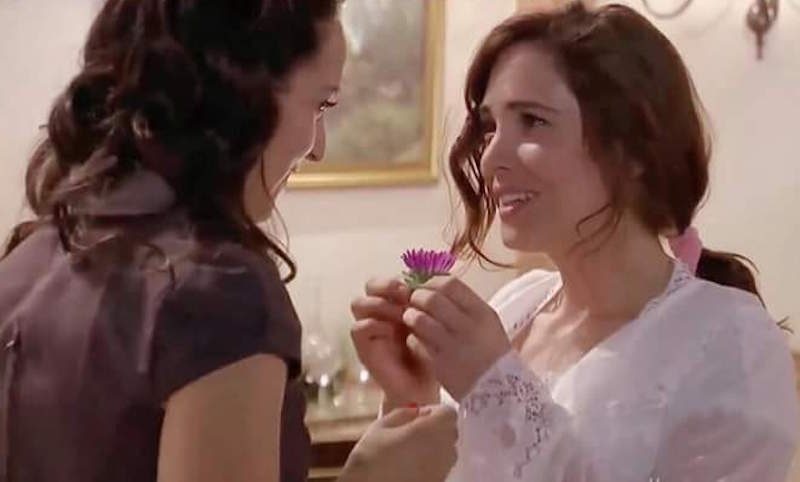For the first time on Chilean TV, we have a female lead who is not afraid to stand up for what she believes in
I’ve never been a big consumer of mainstream TV, I always thought there was nothing much there for me — at least this has always been the case with Chilean television.
It was cable TV or Netflix where I found the content I really wanted to watch. Then, around seven months ago, this changed radically thanks to a call for help from an old friend of mine…
You see, I’m a history teacher and I’m used to people asking me for help when it comes to different periods of Chilean history, but this time the request was different.
I was asked to analyse the social context of a soap opera in regards to the social construct of the time period in which it was set (the 1950’s) and what it meant for the lesbian relationship that was taking place in the small, fictional town of Villa Ruiseñor in Chile, between the Mayor’s daughter and the Sheriff’s wife.
This show, Perdona Nuestros Pecados (Forgive Our Sins), ended just two weeks ago, leaving behind many grieving viewers — especially those emotionally invested in the lesbian relationship at the centre of the show (known as “Barcedes” thanks to the merging of the names of the two ladies involved: Barbara and Mercedes).
The pairing has become a world-wide phenomenon reaching Spain, China, the Philippines, Italy, Austria, Germany, Moldova, Russia, Norway, the United States, and many more countries and communities where perhaps people who knew nothing about Chile before, but have been pulled into the Chilean landscape via the love of Barbara and Mercedes blossoming to conquer all obstacles.
Barbara and Mercedes’s love holds a lot more than just the tale of two “star-crossed lovers”, however. They are also colleagues, both teaching at the same school in town (this in a time where it was not common for women to pursue professions).
The story has all the elements of a classic love tale. We get to see Mercedes’s journey as she struggles to fight for her love and, before that, to accept it and embrace it herself, along with her sexuality which she finally gets to explore as she becomes more and more attracted to Barbara, defying her own notions of what it means to be a good catholic woman.
It is this that created such a strong bond with many young LGBTQIA+ people in our country who, for the first time on national TV, experienced an openly feminist discourse where a female, lead character was strong and assertive, and not afraid to stand up for what she believes in, whether it was the validity of her love, her right to work, or her desire to be an independent woman free of the control of men, and to live a life that was hers and not what others expected of her.
Crucially, even through all of the dramatic storylines, Barcedes got what few lesbian couples get in TV: a happy ending!
This was not a story of death or impossible love, this story had an ending unlike any other we’ve seen in Chile before, an ending where they not only ended up together, but they did not have to hide, they did not have to run, they were finally embraced by their families, accepted for their love, and were shown as an openly lesbian couple raising their daughter together with the support of their family.
This was clearly presented on a show that did not only reach a great number of Chilean households, but that was also enjoyed through the network’s international broadcast on YouTube, plus many volunteer broadcasts from fans who also took the time to sub the show so that fans in different countries could enjoy it right along with us Chileans!
The most beautiful thing of all is that, not only is this something the fans want, but also the actors, writers, and director of the original show! This is a joint project between the fans and the creators of this wonderful story who want to convince the network that this story is worth continuing.
Visibility matters because positive role models matter, and breaking stereotypes matters. These types of stories save lives. We don’t only want them, we need them.
Translated by Katheryn Haye.
